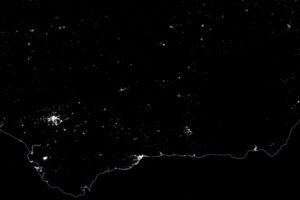GS-3: Infrastructure

Key Points:
- A blackout in Spain and Portugal highlights grid stability issues with solar and wind energy.
- Grid frequency (50 Hz in Europe) must be balanced to avoid disruptions.
- Renewables lack the inertia of traditional power plants, increasing grid vulnerability.
- Energy storage and backup systems are critical for renewable grid reliability.
In-Depth Analysis:
- Issue:
- The April 28 blackout underscores systemic challenges in transitioning from fossil fuels.
- Renewables supplied 70% of Spain’s electricity before the outage.
- Technical Challenge:
- Traditional plants provide inertia to stabilize frequency; renewables do not.
- Minor supply-demand mismatches can destabilize renewable-heavy grids.
- Solutions Needed:
- Energy storage (batteries, pumped hydro, flywheels).
- Inertia-mimicking technologies and advanced grid controls.
- Emerging Technologies:
- Flywheels in the UK, pumped hydro, and large-scale batteries globally.
Technical Concepts:
- Grid Inertia: Resistance to frequency changes, provided by traditional plants.
- Frequency Stability: Critical for consistent power supply.
- Energy Storage: Includes batteries, flywheels, and pumped hydro.
Importance:
- Reflects challenges in transitioning to green energy without robust infrastructure.
- Emphasizes the need for flexible energy systems.
- Highlights the role of hybrid systems combining renewables and storage.




